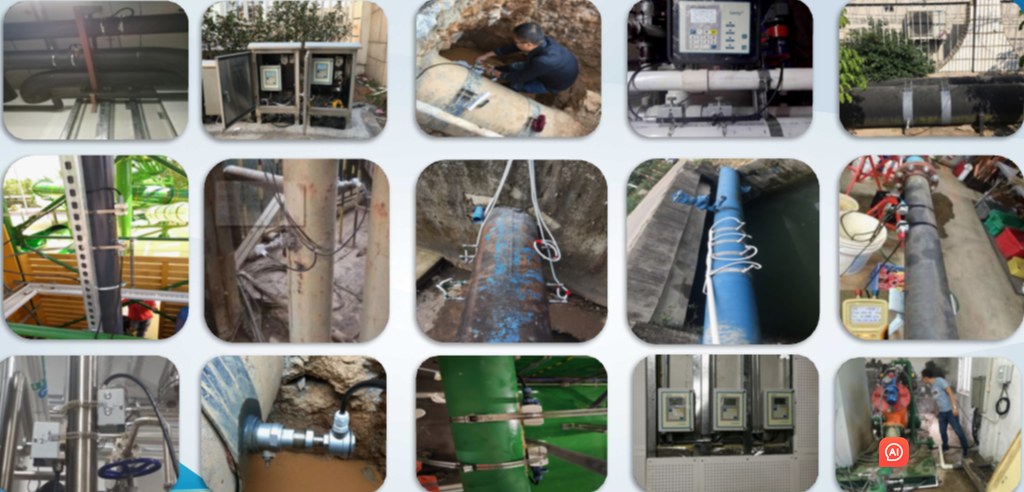
Transit-time ultrasonic flow meters are advanced instruments used to measure the flow rate of liquids and gases within pipelines and other conduits. These meters utilize the principle of time measurement to determine the velocity of the medium flowing through the pipe, offering accurate, reliable, and non-intrusive flow measurement solutions. In this article, we explore the working principle, applications, and benefits of Transit-time flow meters.
The Principle of Transit-time Flow Meters
Transit-time flow meters operate based on the principle of measuring the time it takes for an acoustic or electromagnetic pulse to travel between two points in the fluid. The measurement involves transmitting a signal from one transducer and recording the time it takes for the signal to travel through the fluid to a receiver. The difference in time between the forward and reverse paths is then used to calculate the flow velocity.
In ultrasonic transit-time flow meters, for instance, sound waves are used to determine the flow rate. When the flow is moving in the same direction as the sound pulse, the time taken to travel between the transducers is shorter. Conversely, when the flow is moving in the opposite direction, the time taken increases. By accurately calculating the difference in these time measurements, the flow meter can determine the flow velocity and, subsequently, the volumetric flow rate.
Advantages of Transit-time Flow Meters
1.Non-Intrusive Measurement
One of the key advantages of transit-time flow meters is their non-intrusive nature. Since they do not require direct contact with the fluid, they are ideal for measuring difficult or hazardous substances without affecting the flow or compromising system integrity.
2.High Accuracy
Transit-time flow meters provide high accuracy in flow measurements due to their ability to measure time differences with precision. This leads to improved efficiency and performance in industrial processes where accurate flow rates are critical.
3.Versatility in Application
These flow meters can be used to measure a wide range of liquids and gases across various industries. They are commonly used in applications such as water treatment plants, oil and gas pipelines, and chemical processing facilities.
4.Real-Time Flow Monitoring
With transit-time flow meters, operators can continuously monitor flow rates in real time. This helps in optimizing processes, ensuring safety, and enabling predictive maintenance by detecting flow anomalies that may indicate blockages or equipment malfunctions.
5.Minimal Maintenance
Since transit-time flow meters don’t have moving parts or direct contact with the flow medium, they typically require minimal maintenance compared to mechanical flow meters, which can be subject to wear and tear.
Applications of Transit-time Flow Meters
1.Ultrasonic Flow Measurement
Transit-time technology is most commonly associated with ultrasonic flow meters, which are widely used for measuring water, steam, and natural gas in pipelines. Their ability to measure both small and large flow rates accurately makes them an essential tool in sectors like water distribution and energy production.
2.Pipeline Monitoring
In the oil and gas industry, Transit-time flow meters are used to monitor the flow of crude oil, natural gas, and refined products within pipelines. These meters provide accurate real-time data, which is crucial for optimizing throughput and detecting leaks or other system issues.
3.Chemical and Pharmaceutical Industries
Accurate flow measurement is vital in chemical and pharmaceutical industries, where precise dosing is required for product formulation.Transit-time flow meters offer a reliable solution for these applications, ensuring compliance with strict quality and safety standards.
4.Smart Flow Metering
Transit-time flow meters are increasingly being integrated into smart flow metering systems that allow for remote monitoring and control. These systems enable operators to manage multiple installations from a central location, improving operational efficiency and reducing the need for manual interventions.
In conclusion, transit-time ultrasonic flow meters represent a leap forward in flow measurement technology. Their non-intrusive design, high accuracy, versatility, and minimal maintenance requirements make them a preferred choice in industries ranging from water treatment to oil and gas. By leveraging real-time monitoring and smart metering capabilities, businesses can optimize their operations, improve safety, and reduce downtime. Whether you’re looking for an efficient way to measure the flow of liquids in a pipeline or monitoring complex industrial systems,Transit-time flow meters provide a cutting-edge solution for today’s measurement needs.

Post time: Jan-07-2025

